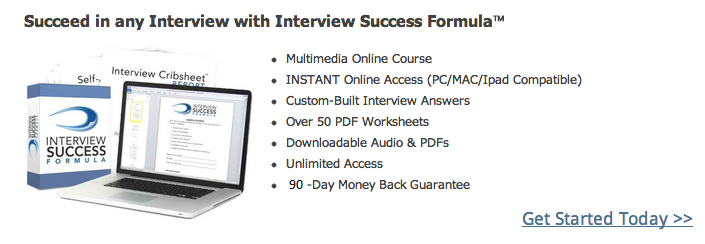 One hour can decide where you work for the next five years or more. And you spend that hour with strangers, focused on a rare conversation topic...
One hour can decide where you work for the next five years or more. And you spend that hour with strangers, focused on a rare conversation topic...
It makes sense to feel nervous.
Unfortunately, interviewers can’t always tell when nerves stems from feeling nervous about the interview versus feeling nervous about doing the job. As a result, they can mistakenly dismiss a nervous candidate as an underperformer.
To avoid this situation, here’s how to build confidence for your next job interview.
First, learn why top performers are often less confident than incompetent performers. Then identify specific steps to take before your next job interview to give you a confidence boost.
Let me introduce you to the “Dunning-Kruger effect.” It’s a reason why an untrained rookie might feel confident about doing the job, yet you, a skilled veteran, could feel less sure.
Researchers Dunning and Kruger found unskilled workers were often overly confident for a simple reason. They were in that, “ignorance is bliss,” state. They lacked the skill to even recognize when they made mistakes.
Meanwhile, the opposite happens to solid performers. Solid performers compare themselves to their high performing peers. So they recognize what it takes to be great, and where they measure up to this high standard, for better and for worse. Because of this measuring up, despite being far more skilled than the average Joe off the street, they may be less confident than their skills suggest.
Solid performers face another challenge in the job interview, the “curse of knowledge”. Because of their professional training, performers’ brains actually work differently than rookies or hiring managers from a different field. Without even thinking about it, they just know how to do their jobs. As result, they can have difficulty explaining their skills and experience to an unfamiliar hiring manager.
(As, an aside, this is one reason interviewers use the “STAR” interview method or other structured interview styles – to overcome this communication gap. It’s also why you may want to use stories to explain past accomplishments, something covered in our online course.)
With that background on what could be holding you back, let’s return to how to build your confidence for your next job interview.
Now, confidence does not mean arrogance. Instead, it means that you believe and trust yourself to perform the job well. Further, it means that you believe you can communicate your abilities to the interviewer.
The opposite of having this sense of confidence is to feel that you are just an entrant into the job interview lottery who is hoping for your number to somehow be pulled from the stack.
There are several steps you can take to avoid that ‘lottery’ mindset and build your confidence:
The first is to recognize your value. Think how much value you can create with your talent, and think about your capacity to do a job well. Remember to compare yourself to not just top performers, but also the average Joe off the street.
If you want, make a list of projects you’ve worked on and accomplishments you’ve had. You can even visualize those past moments where you were most successful at work. Once you remind yourself of your ability, you will feel stronger.
The second way to build confidence is to prepare well for your job interview. This includes knowing what stories to tell to demonstrate that you will effectively do the job. Then, make sure that those stories are understandable to someone who is not an expert in your industry.
Preparing for your next interview should also include:
Thinking through what interview questions they are going to ask you.
Practicing responses to these questions to the point that they feel comfortable and familiar.
When you don’t have to worry about what you are going to say during the interview, there is a lot less to be nervous about.
Finally, if you carry yourself confidently, you will feel confident. Your body's posture can change your emotions. If you are feeling tense, try rolling your shoulders backward or shrugging. If you are feeling nervous, think of something funny and smile. If you are lacking confidence, stand up or sit up as straight as possible.
Confidence stems from how you see yourself. So before your next job interview, build a persuasive case for why you are a great fit. And make sure you believe in it.
To learn more about how to identify key interview questions, overcome the “curse of knowledge”, and boost your confidence, click here now to take a look at the material covered in our video based online course.


